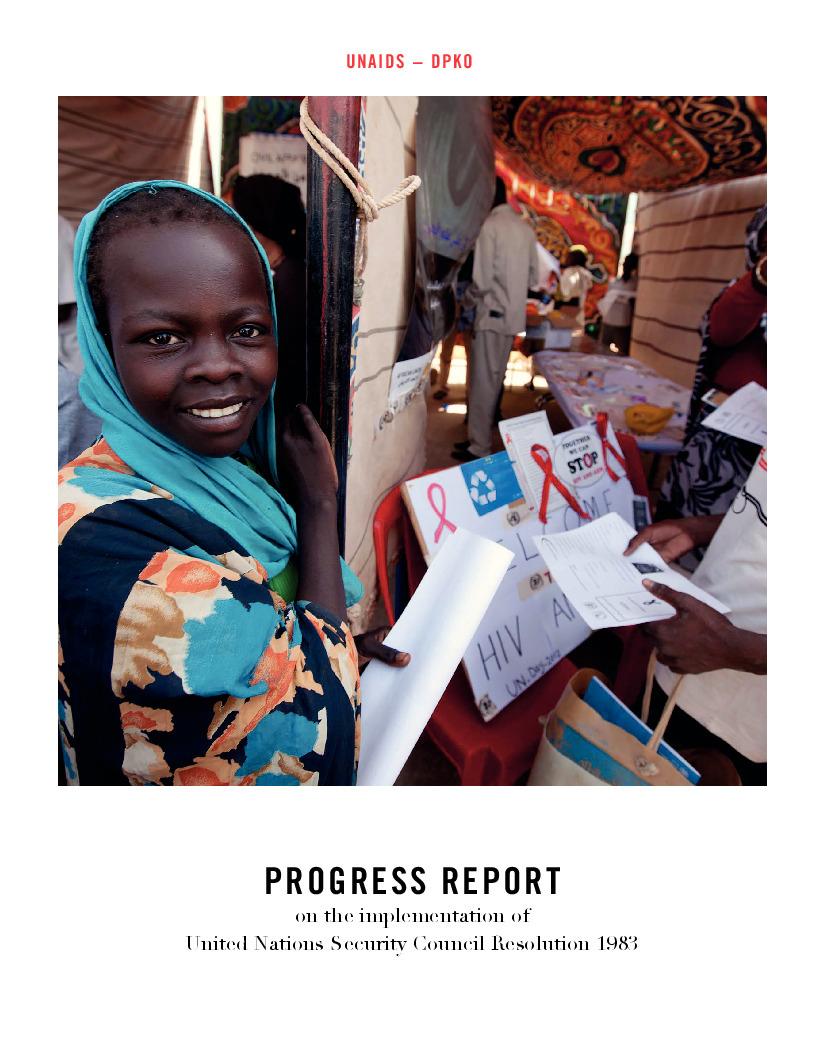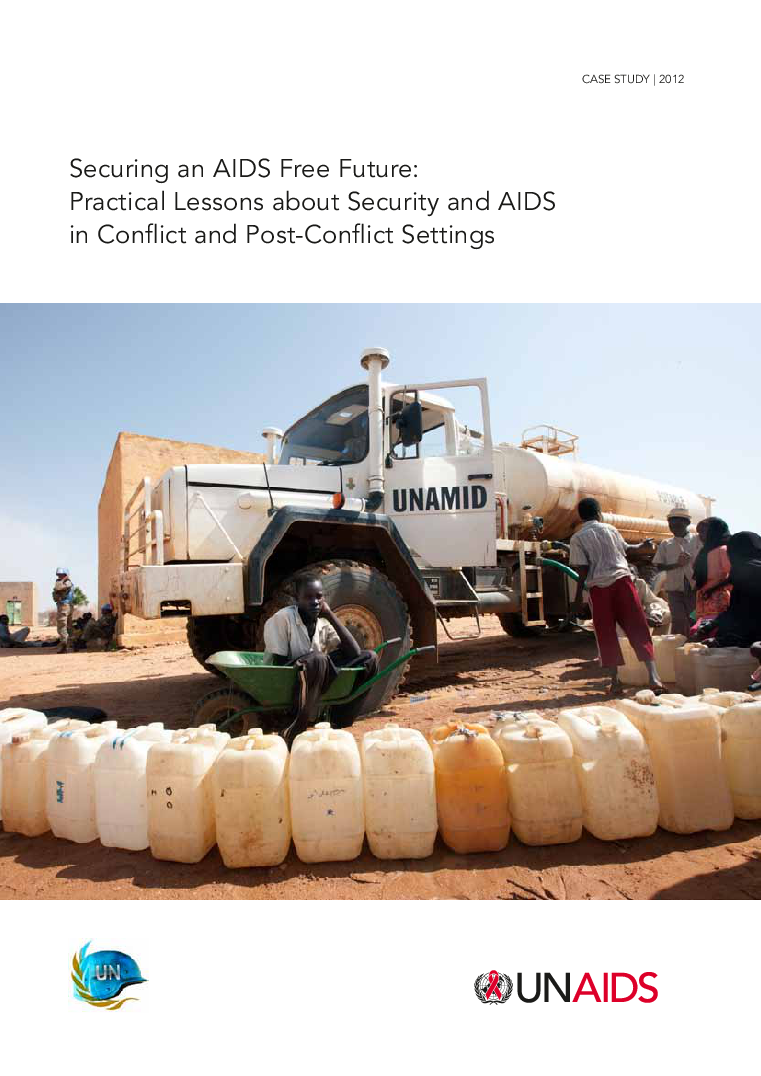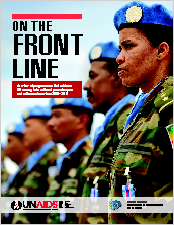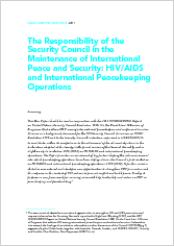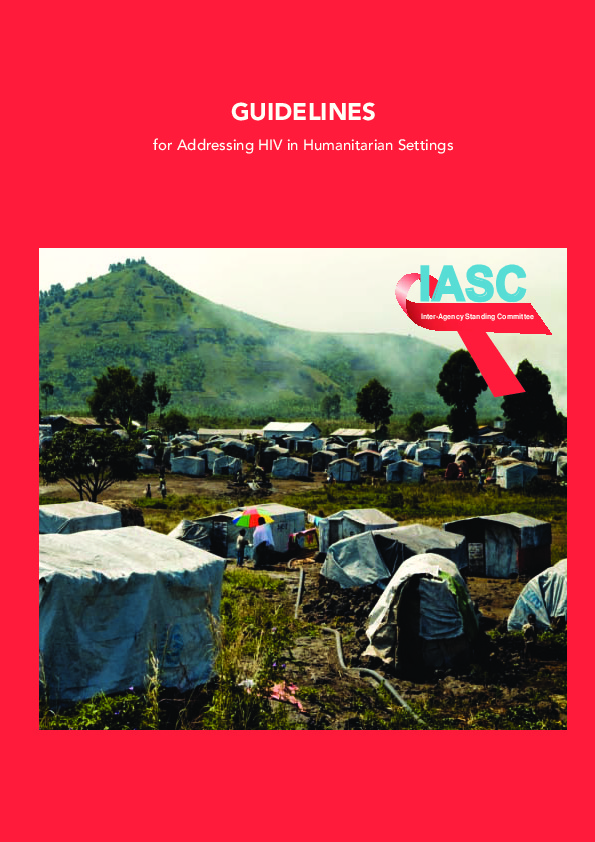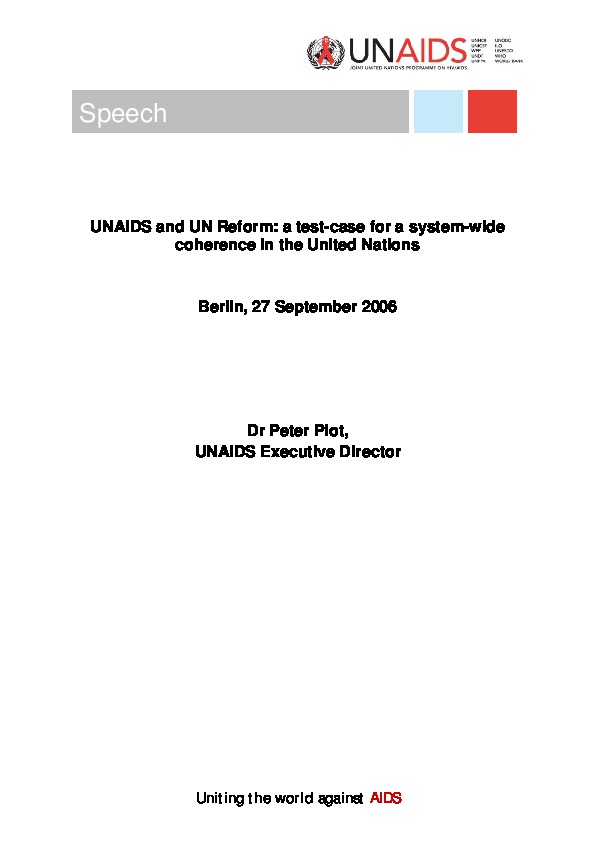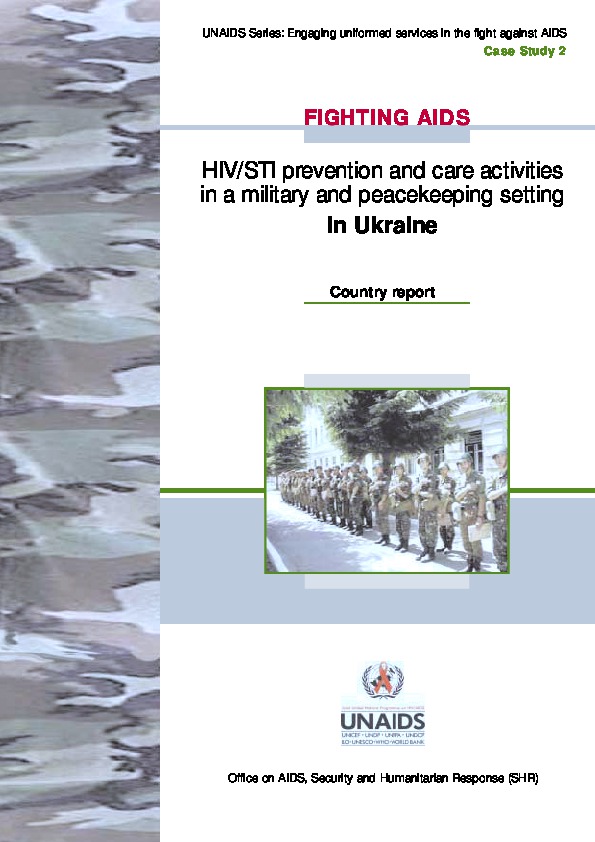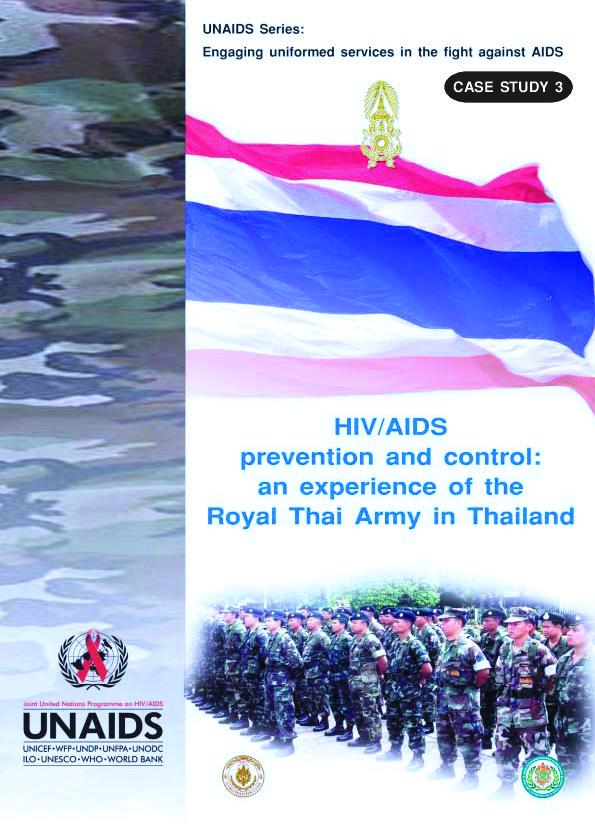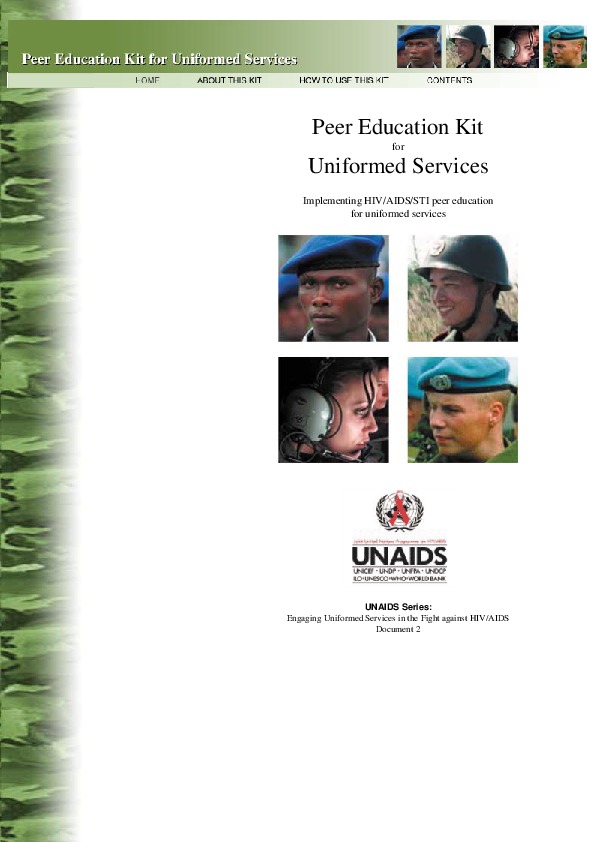The President of the Central African Republic commits to increasing access to basic social services
The President of the Central African Republic visited UNAIDS to discuss ongoing efforts to rebuild his country, advance national reconciliation and deliver basic services for the populations after decades of political instability and conflict.
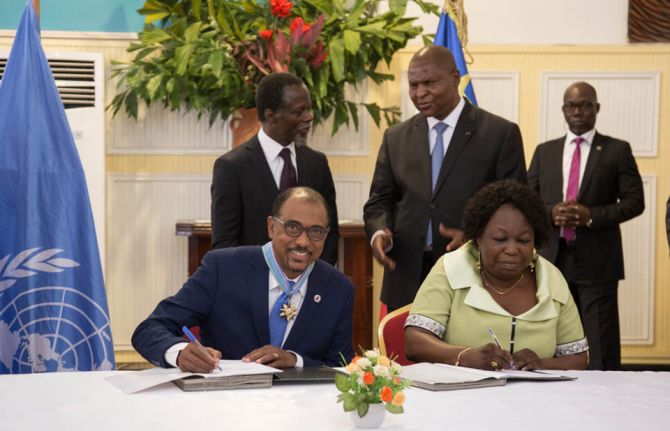
UNAIDS to work with uniformed forces in the Central African Republic to end sexual violence and abuse and stop new HIV infections
New initiative launched to engage the military and other uniformed personnel in HIV awareness, prevention and treatment and eliminate sexual and gender-based violence by defence and security forces
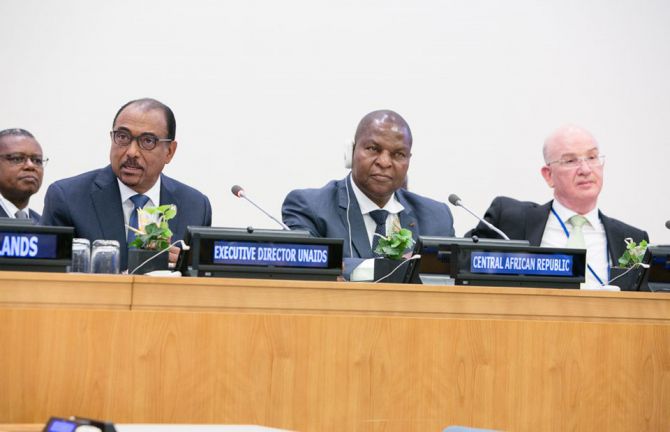
The African Union and UNAIDS, as Chair of the H6 partnership, join forces to tackle sexual and gender-based violence and health in humanitarian crises
UNAIDS, the Chair of the H6 partnership (six United Nations bodies working on health-related issues), and the African Union have pledged to enhance their collaboration to eliminate sexual and gender-based violence, prevent HIV and protect women’s health and rights in humanitarian settings.
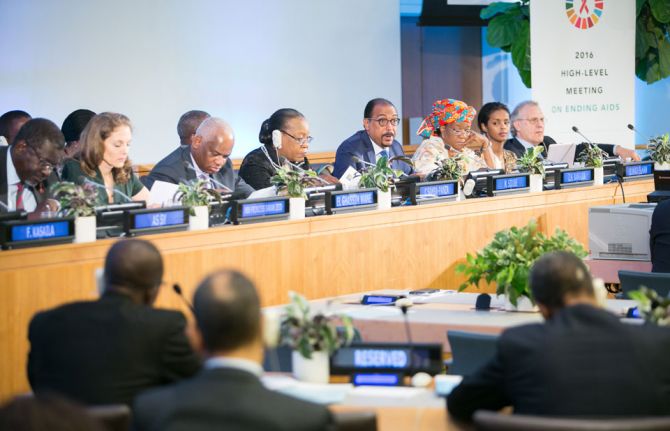
HIV and security: past, present and future
If we do not address HIV among populations affected by conflict, natural disasters and emergencies, we will not see the end of the HIV epidemic by 2030.
President of South Sudan commits to strengthening the country’s response to HIV
The population of South Sudan is largely made up of young people. According to the World Bank, 51% of the population in the country are under the age of 18 and 72% are under the age of 30. President Kiir acknowledged the need to tailor HIV services to the needs of young people, “If they are left vulnerable, there will be no country,” he said.
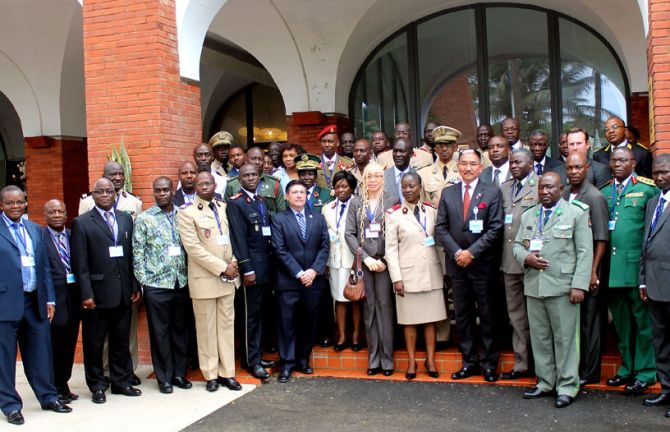
Call for scale up of HIV prevention programmes for military and security forces in West and Central Africa
High-level military representatives from 19 countries in West and Central Africa have called on governments to scale up HIV prevention programmes specific for military and security forces to reduce new HIV infections and sexual gender-based violence in conflict and post conflict areas in the region.
UNAIDS and DPKO shine a light on ending violence against women
New initiative launched to address HIV and sexual and gender-based violence in conflict and post-conflict settings
On the front line: Report outlines progress made and the obstacles encountered in implementing Security Council Resolution 1308
UNAIDS and the United Nations Department of Peacekeeping Operations (DPKO) have published a new report outlining the progress made and the obstacles encountered in implementing Security Council Resolution 1308.
16 Days of Activism: The forgotten victims of conflict in the Congo
Tomorrow, December 10 marks the end of 16 days of activism to end violence against women, an international campaign. UNHCR, the UN refugee agency, is taking the opportunity to draw attention to its work, alongside local partners, in challenging the very high number of rapes occurring in the eastern Democratic Republic of the Congo.
Study tour of Police initiatives in India
National police officers and National AIDS Programme heads from Cambodia, Maldives, Mongolia, Philippines, and Sri Lanka visited India last month to get a firsthand experience of law enforcement initiatives on interventions related to high risk populations.


